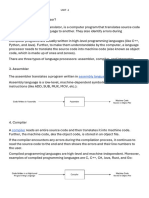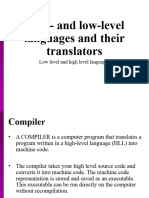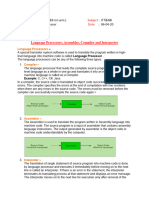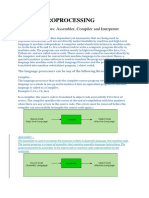0% found this document useful (0 votes)
9 views3 pagesRevision Notes
Compilers and interpreters are both language processors that convert high-level programming languages into machine code, but they operate differently. A compiler translates the entire program at once and checks for errors before generating object code, while an interpreter translates the code line by line during execution and does not produce object code. Compilers are generally faster and more efficient, whereas interpreters are easier to use but slower in execution.
Uploaded by
r242979cCopyright
© © All Rights Reserved
We take content rights seriously. If you suspect this is your content, claim it here.
Available Formats
Download as DOCX, PDF, TXT or read online on Scribd
0% found this document useful (0 votes)
9 views3 pagesRevision Notes
Compilers and interpreters are both language processors that convert high-level programming languages into machine code, but they operate differently. A compiler translates the entire program at once and checks for errors before generating object code, while an interpreter translates the code line by line during execution and does not produce object code. Compilers are generally faster and more efficient, whereas interpreters are easier to use but slower in execution.
Uploaded by
r242979cCopyright
© © All Rights Reserved
We take content rights seriously. If you suspect this is your content, claim it here.
Available Formats
Download as DOCX, PDF, TXT or read online on Scribd
/ 3

























































































